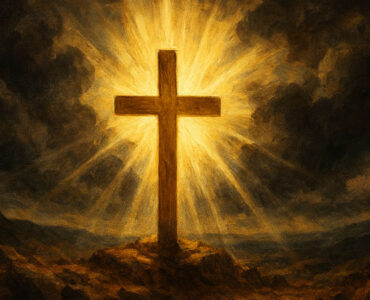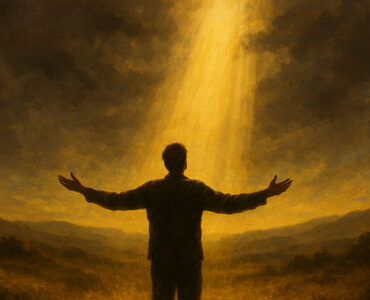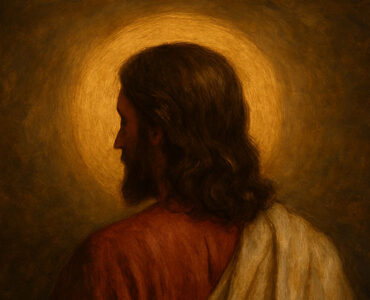Have you ever wondered what the Bible says about Lucifer’s fall from heaven? This intriguing topic has fascinated theologians and believers for centuries. The story of Lucifer’s expulsion from heaven is not just a tale of rebellion but also a profound lesson on pride, disobedience, and the consequences of turning away from God.
What does the Bible say about Lucifer?
The Bible provides several passages that describe the fall of Lucifer, often interpreted as a powerful angel who rebelled against God. Two key passages are:
- Isaiah 14:12-15: This passage poetically describes the fall of a figure often identified as Lucifer, the “morning star,” who sought to ascend above the heavens but was cast down to the earth.
- Ezekiel 28:12-17: Here, the prophet Ezekiel speaks of a being who was once perfect in beauty and wisdom but became corrupt due to pride and was expelled from the presence of God.
These verses highlight the themes of pride and rebellion, illustrating the consequences of defying divine authority.

Is Lucifer another name for Satan?
The identification of Lucifer with Satan is a topic of much debate among scholars. While the name “Lucifer” is traditionally associated with the devil, the Bible does not explicitly equate the two. The term “Lucifer” comes from the Latin word for “light-bringer” or “morning star,” and its use in Isaiah 14:12 has led to its association with the fallen angel.
Read More: Lucifer’s Rebellion: The Rise of Satan
However, other biblical passages, such as those in the New Testament, refer to Satan as the adversary or accuser, a being who opposes God and tempts humanity. The connection between Lucifer and Satan is thus more interpretative than explicit, shaped by centuries of theological reflection and tradition.
The concept of fallen angels
The story of Lucifer’s fall is part of a broader biblical theme concerning fallen angels. These are angels who, like Lucifer, chose to rebel against God and were cast out of heaven as a result. This concept is explored in various biblical and apocryphal texts, painting a picture of a cosmic struggle between good and evil.
- Revelation 12:7-9: This passage describes a war in heaven, where Michael and his angels fight against the dragon (often identified as Satan) and his angels, who are ultimately defeated and cast out of heaven.
- 2 Peter 2:4: Peter speaks of angels who sinned and were cast into hell, bound in chains of darkness.
These references underscore the idea that rebellion against God leads to severe consequences, not just for Lucifer but for all who follow his path.
The Bible’s account of Lucifer’s fall from heaven is a rich and complex narrative that offers insights into the nature of pride, rebellion, and divine justice. By examining these key verses and their interpretations, we can gain a deeper understanding of this pivotal event and its significance in Christian theology.

Key Bible Verses on Lucifer’s Expulsion
Isaiah 14:12-15: How Art Thou Fallen from Heaven, O Lucifer!
Interpretation of Isaiah 14:12-15
Verse 12:
- “How art thou fallen from heaven, O Lucifer, son of the morning! how art thou cut down to the ground, which didst weaken the nations!”
- Lucifer’s Fall: This verse describes the fall of Lucifer, once a powerful and radiant being, from heaven to earth.
- Symbolism: Lucifer, meaning “light-bringer” or “morning star,” symbolizes pride and rebellion against God.
- Weaken the Nations**: Indicates Lucifer’s influence in leading nations astray and causing chaos.
Verse 13:
“For thou, hast said in thine heart, I will ascend into heaven, I will exalt my throne above the stars of God: I will sit also upon the mount of the congregation, in the sides of the north:”
- Pride and Ambition: Lucifer’s desire to ascend above God and take His place highlights his immense pride and ambition.
- Mount of the Congregation: Refers to the divine assembly, indicating Lucifer’s desire to rule over the heavenly hosts.
Read More: Who Is Satan? The History and Role of the Devil
Verse 14:
“I will ascend above the heights of the clouds; I will be like the most High.”
- Desire for Divinity: Lucifer’s aspiration to be like God showcases his ultimate act of rebellion.
- Heights of the Clouds: Symbolizes the highest possible position, emphasizing Lucifer’s lofty ambitions.

Verse 15:
“Yet thou shalt be brought down to hell, to the sides of the pit.”
- Divine Judgment: Despite his ambitions, Lucifer is destined for downfall and punishment.
- Hell and the Pit: Represents the lowest state of existence, contrasting his initial high position.
Theological Implications of Isaiah 14:12-15
- Pride and Rebellion: The passage serves as a cautionary tale about the dangers of pride and rebellion against divine authority.
- Divine Justice: Emphasizes the inevitability of divine justice and the consequences of defying God’s will.
- Symbolic Representation: Lucifer’s fall is often interpreted as a symbolic representation of the fall of any being or nation that exalts itself against God.
- Moral Lesson: Encourages humility and obedience to God, warning against the perils of arrogance and self-exaltation.
This passage from Isaiah provides profound insights into the nature of pride, ambition, and the ultimate consequences of rebellion against divine authority. It serves as a powerful reminder of the importance of humility and the certainty of divine justice.
Ezekiel 28:12-17: A Perfect Being Filled with Iniquity
This passage is part of a prophecy against the King of Tyre, delivered by the prophet Ezekiel. It is often interpreted as a dual prophecy, addressing both the earthly king and a more profound, spiritual being, often identified as Satan.
Read More: How Satan Deceived Eve?
The passage begins by describing a being of perfect beauty and wisdom, adorned with precious stones and placed in Eden, the garden of God.
- Verse 12: “You were the seal of perfection, full of wisdom and perfect in beauty.”
- Verse 13: Lists the precious stones and mentions the being’s presence in Eden.
- Role and Fall: The being is described as an anointed guardian cherub, blameless until iniquity is found in them.
- Verse 14: “You were anointed as a guardian cherub, for so I ordained you.”
- Verse 15: “You were blameless in your ways from the day you were created till wickedness was found in you.”
- Downfall: The passage details the being’s fall from grace due to pride and corruption.
- Verse 16: “Through your widespread trade you were filled with violence, and you sinned.”
- Verse 17: “Your heart became proud on account of your beauty, and you corrupted your wisdom because of your splendor.”

Theological Implications of Ezekiel 28:12-17
- Nature of Sin: This passage highlights the origin of sin, emphasizing pride and self-exaltation as the root causes.
- Pride: The being’s beauty and wisdom led to pride, which ultimately caused their downfall.
- Corruption: The passage illustrates how perfection can be corrupted by iniquity.
- Satan’s Fall: Many theologians interpret this passage as a description of Satan’s fall from heaven.
- Symbolism: The King of Tyre symbolizes Satan, who was once a perfect being but fell due to pride and rebellion against God.
- Human Application: The passage serves as a warning against pride and self-exaltation for humanity.
- Moral Lesson: It teaches the importance of humility and the dangers of allowing pride to corrupt one’s character.
- Divine Judgment: The passage underscores the inevitability of divine judgment against sin and rebellion.
- God’s Justice: It reaffirms the belief that God will not tolerate sin and will bring judgment upon those who rebel against Him.

Literary Context of Isaiah 14 and Ezekiel 28
Isaiah 14:
- Historical Background: Isaiah 14 is set against the backdrop of the Babylonian exile. It contains a prophecy against the king of Babylon, symbolizing the downfall of oppressive rulers.
- Themes: The chapter explores themes of pride, downfall, and restoration. It portrays the fall of the proud (often symbolized by Lucifer or the King of Babylon) and the promise of restoration for the humble and faithful (the people of Israel).
- Structure: Isaiah 14 is part of a larger literary structure in the Book of Isaiah, which includes antithetical themes such as ruin and rebirth, punishment and deliverance, and suffering and salvation.
Ezekiel 28:
- Historical Background: Ezekiel 28 is part of a series of prophecies against Tyre, a powerful maritime city. It specifically addresses the prince and king of Tyre, using them as examples of pride and self-glorification.
- Themes: The chapter emphasizes the consequences of pride and the ultimate judgment of God. It contrasts the wisdom and splendor of Tyre’s leaders with their eventual downfall.

Lucifer’s Fall
This interconnected narrative highlights the profound impact of Lucifer’s fall on the cosmic order, the nature of evil, and the enduring struggle between light and darkness.
The Origin of Evil
- Lucifer’s Pride: Lucifer, once a high-ranking angel, became consumed by pride and ambition, believing he could surpass God.
- First Act of Rebellion: This pride led to the first act of disobedience and the birth of evil, as Lucifer sought to challenge God’s authority.
- Introduction of Sin: Lucifer’s fall introduced sin into the universe, marking the beginning of moral corruption and the presence of evil.
The Rebellion Against God
- Lucifer’s Revolt: Lucifer rallied a third of the angels to join his rebellion against God, leading to a cosmic conflict.
- Heavenly War: This rebellion resulted in a war in heaven, where Lucifer and his followers were ultimately defeated by the archangel Michael and the loyal angels.
- Expulsion from Heaven: As a consequence, Lucifer and his followers were cast out of Heaven, becoming fallen angels and adversaries to God’s creation.

The Battle Between Good and Evil
- Ongoing Struggle: The fall of Lucifer set the stage for an ongoing battle between good and evil, influencing human history and spiritual realms.
- Temptation and Deception: Lucifer, now known as Satan, continues to tempt and deceive humanity, seeking to lead people away from God.
- Divine Plan: Despite the presence of evil, the battle between good and evil is part of a divine plan, with the ultimate victory of good foretold in religious texts.
Christian Doctrines and Beliefs Influenced by Lucifer’s Fall
The Nature of Satan
Lucifer’s fall from grace is a cornerstone in Christian theology, shaping the understanding of Satan as a once-glorious angel who rebelled against God. This rebellion transformed Lucifer into Satan, the adversary, embodying evil and opposition to God’s will. This narrative underscores the belief in the existence of a personal being who actively works against divine purposes.
The Doctrine of Sin
The fall of Lucifer also profoundly influences the Christian doctrine of sin. It illustrates the origin of sin as an act of rebellion against God, emphasizing the gravity of disobedience and pride. This event serves as a cautionary tale, highlighting the consequences of turning away from divine commandments and the inherent nature of sin as a corrupting force.

The Concept of Hell
Lucifer’s fall is intrinsically linked to the concept of hell in Christian doctrine. Hell is often depicted as the ultimate destination for Satan and his followers, a place of eternal separation from God. This belief reinforces the idea of divine justice and the eternal consequences of sin, serving as a stark reminder of the importance of righteousness and obedience to God’s will.
Memorable Ending
Imagine a world where the story of Lucifer’s fall serves not just as a warning, but as a challenge to strive for humility and righteousness. Let this tale inspire us to reflect on our actions and choices, encouraging us to seek a path of virtue and integrity. In doing so, we can transform a narrative of rebellion and downfall into one of redemption and hope.









Add comment